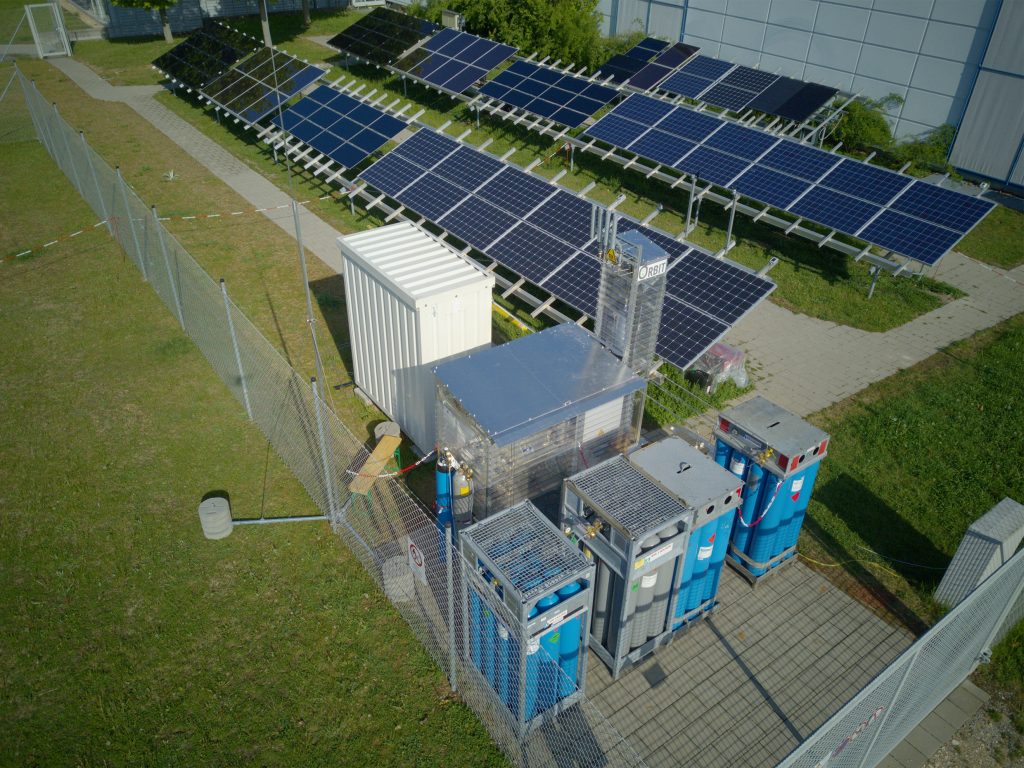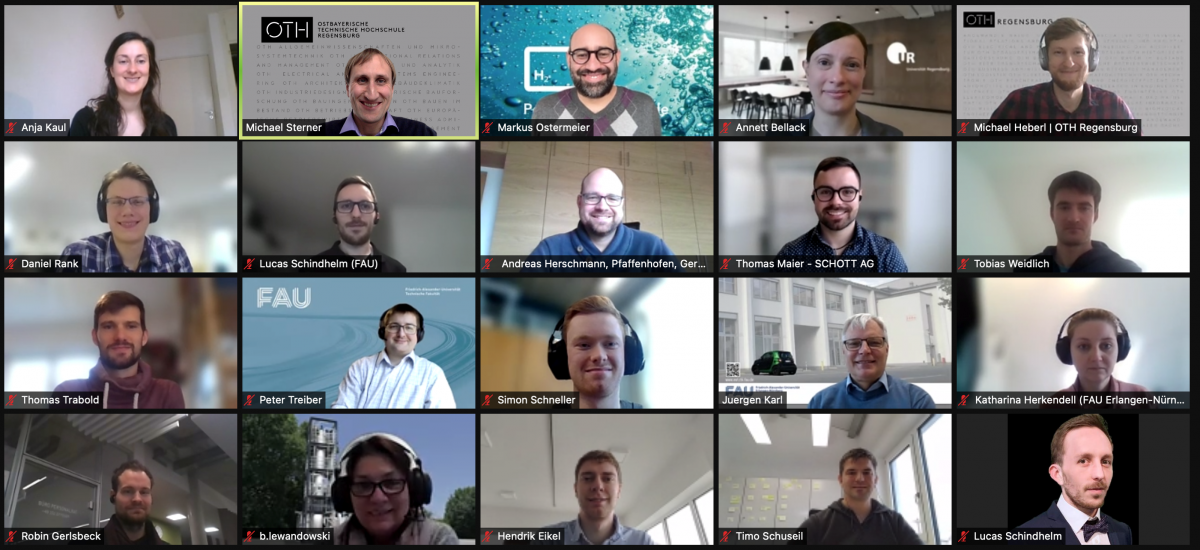Our kickoff meeting held on January 12th 2022 marks the starting point for the continuation of the “ORBIT” project. The overriding goal of the consortium continues to be the production of methane from electricity and carbon dioxide, thus contributing to the energy transition. A total of ten partners are working within the framework of “ORBIT II” on the further development and industrial use of a power-to-gas plant.
The generation and effective use of electricity from renewable sources continues to play the most important role in mitigating climate change. However, an essential building block for a successful energy transition is the storage of this energy in order to compensate for fluctuations in renewable energies. In the joint project “ORBIT II” (expansion of a highly efficient trickle bed bioreactor and optimization of the methanation plant for commercial industrial use), work is being carried out under the leadership of OTH Regensburg on the expansion of a power-to-gas plant in order to bring this technology closer to commercial use on a relevant scale.
As in the first “ORBIT” project, archaea take on the central task of methanation, converting carbon dioxide and hydrogen into methane and water. Archaea are microorganisms that are among the oldest living organisms on earth. The bioreactor set up in the previous project will be expanded within the “ORBIT II” oroject to include, among other things, an electrolyzer and it will be converted into a scalable container solution. Through a two-year trial phase with various industrial gases and a field test in a sewage treatment plant, the project partners will gain new knowledge on the economic operation of the plant. Plant configurations for various industrial applications will be developed, allowing for customized solutions to be developed.

Fortunately, a large part of the ORBIT consortium could also be won for the second project phase. The Research Center for Energy Networks and Energy Storage (FENES) of the OTH Regensburg is again taking over the project management, expanding the plant together with the partners and managing the trial operation at the power-to-gas plant. The University of Regensburg’s Chair of Microbiology and the Archaea Center are responsible for the investigation of the archaea and are testing, among other things, various archaea-filler-industrial gas combinations. The Chair of Energy Process Engineering at the Friedrich-Alexander University of Erlangen-Nuremberg is developing and building a downscale of the plant and conducting further test series.
The consortium is supplemented by the industrial companies Ostermeier H2ydrogen Solutions GmbH (Schweitenkirchen) and Schott AG with its Landshut site. Ostermeier H2ydrogen Solutions GmbH is contributing its expertise in hydrogen production to the project and is supplying the electrolyzer for the power-to-gas plant. Schott AG manufactures glass fillers for the methanation reactor.
In addition, the companies Electrochaea GmbH, Hitachi Zosen Inova Schmack GmbH and MicroPyros BioEnerTec GmbH are participating in the project as associated partners and contributing their experience in the field of biological methanation. Other associated partners are the municipal utility Stadtwerke Pfaffenhofen a. d. Ilm and the Bürgerenergiegenossenschaft im Landkreis Pfaffenhofen a. d. Ilm eG. The two Pfaffenhofen partners support the integration of renewable electricity into the power-to-gas plant, its operation in a sewage treatment plant and the participation of citizens.
At the kick-off meeting, it became clear once again that the consortium wants to use the “ORBIT II” project to make a contribution to achieving climate goals and overcoming the challenges of climate change.
“ORBIT II” is funded by the German Federal Ministry of Economics and Climate Protection (BMWK) with a sum of 1.8 million euros. The project started on December 1st 2021 and will run for three years.
Authors: FENES

